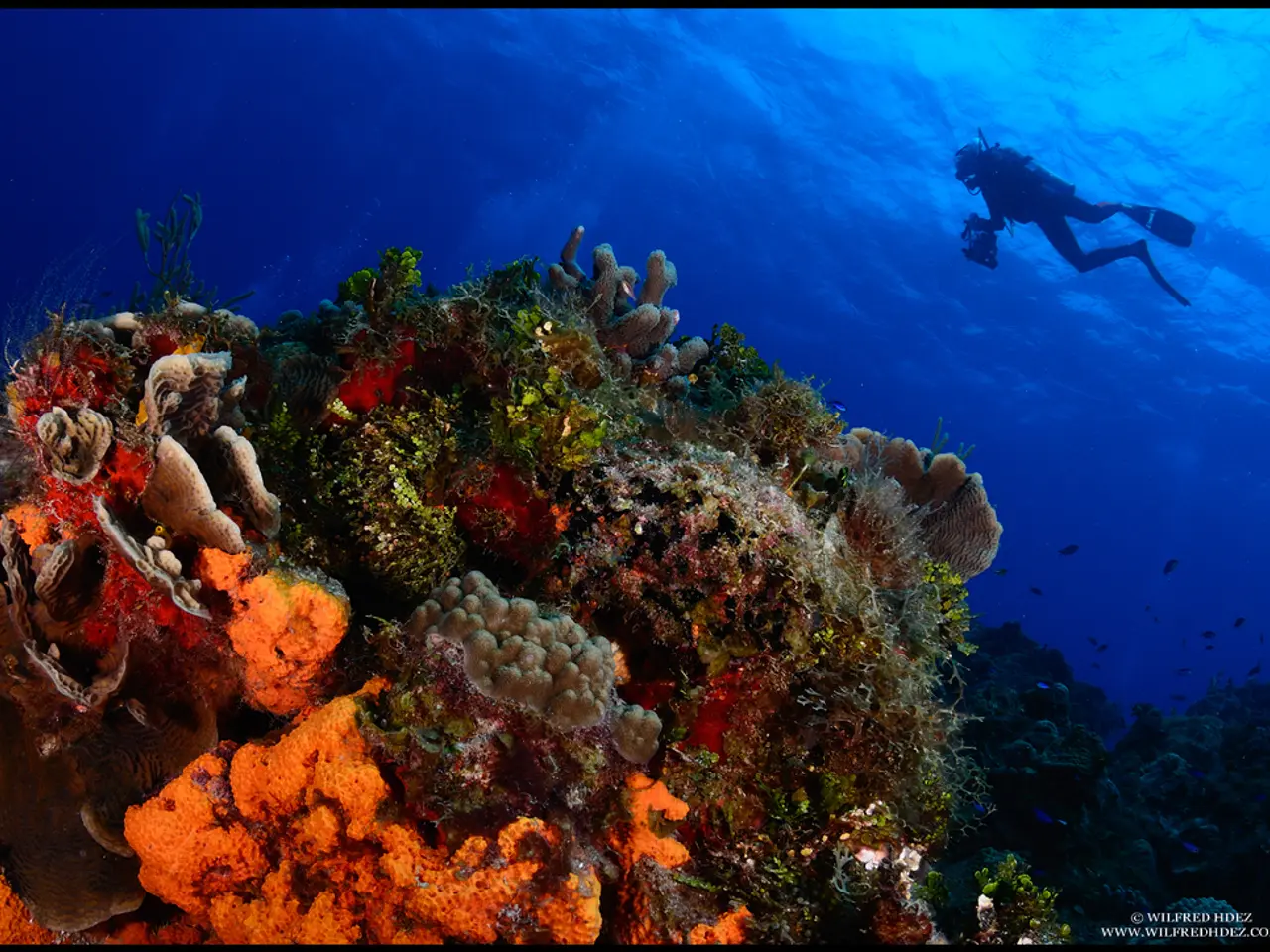The Philippines intends to initiate a binding South China Sea code in 2026. Will they manage to achieve this goal?
In a recent podcast interview, Ferdinand Marcos Jnr, the candidate for the Philippines, confirmed his administration's intent to pursue a legally binding agreement in the South China Sea. This region, considered volatile by the Philippines due to its maritime zones, is a priority for the Philippines as they seek stability.
Marcos emphasized the importance of a code of conduct (COC) in the South China Sea, stating that it would outline acceptable and appropriate behaviour among claimant states. The COC, according to Marcos, would prevent actions that could further provoke tensions among claimant states, such as ship collisions and the construction of artificial islands.
However, Marcos did not specify if his administration would pursue a COC that explicitly includes a prohibition on the construction of artificial islands. He also did not mention any specific timeline for negotiations or the implementation of a COC.
It is worth noting that the international tribunal ruled in favour of the Philippines' claims in the South China Sea in 2016. However, Beijing has consistently rejected this ruling and upholds its nine-dash-line claim, basing it on historical accounts.
The negotiations for the South China Sea COC are currently ongoing with intensified efforts to finalize the agreement by or before July 2026. ASEAN and China have been holding senior officials’ meetings to accelerate discussions and create a conducive environment for negotiations, emphasizing respect for the Declaration on the Conduct of Parties in the South China Sea (DOC) and aiming to maintain peace, security, and stability in the region.
The Philippines, under President Ferdinand Marcos Jr., is actively pushing for a legally binding COC to regulate behaviour and reduce conflicts in the South China Sea. Marcos Jr. has publicly stated his administration will “certainly try” to achieve this outcome, stressing the urgency of such an agreement for regional stability.
References:
[1] ASEAN, China to intensify South China Sea Code of Conduct talks. (2022, March 1). Channel NewsAsia. [Online]. Available: https://www.channelnewsasia.com/news/asiapacific/asean-china-to-intensify-south-china-sea-code-of-conduct-talks-20220301
[2] South China Sea: ASEAN and China to accelerate talks on maritime code of conduct. (2022, February 28). BBC News. [Online]. Available: https://www.bbc.com/news/world-asia-60535385
[3] Marcos Jr. vows to pursue legally binding code of conduct in South China Sea. (2022, March 4). Rappler. [Online]. Available: https://www.rappler.com/nation/elections/2022/presidential-race/689687-marcos-jr-vows-to-pursue-legally-binding-code-of-conduct-in-south-china-sea
[4] South China Sea: Marcos Jr vows to pursue 'legally binding' code of conduct. (2022, March 4). Al Jazeera. [Online]. Available: https://www.aljazeera.com/news/2022/3/4/south-china-sea-marcos-jr-vows-to-pursue-legally-binding-code-of-conduct
[5] South China Sea: Philippines seeks legally binding code of conduct. (2022, March 4). Deutsche Welle. [Online]. Available: https://www.dw.com/en/south-china-sea-philippines-seeks-legally-binding-code-of-conduct/a-61081006
- The Philippines, under President Ferdinand Marcos Jr., is actively involved in politics and policy-and-legislation, as they prioritize a legally binding agreement in the South China Sea, which falls under the general news category, due to the ongoing conflict and negotiations with other claimant states.
- In the South China Sea, Ferdinand Marcos Jnr, the candidate for the Philippines, has expressed interest in arts and war-and-conflicts, as he seeks to prevent further provocation among conflicting parties through the implementation of a legally binding Code of Conduct (COC), a form of policy-and-legislation, focusing on acceptable behavior among claimant states.








